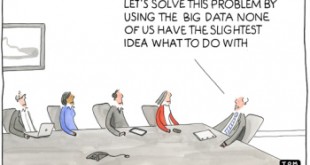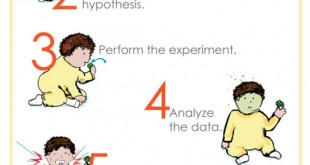Bravest of the brave Edward Snowden and Daniel Ellsberg. Bravest of the brave. Never give in. Never give up. My friends — you bow to no one [embedded content]
Read More »The model of all economic models (wonkish)
The model of all economic models (wonkish) Economics is perhaps more than any other social science model-oriented. There are many reasons for this — the history of the discipline, having ideals coming from the natural sciences (especially physics), the search for universality (explaining as much as possible with as little as possible), rigour, precision, etc. Mainstream economists want to explain social phenomena, structures and patterns, based on the assumption that the agents are acting...
Read More »Three symptoms of the sorry state of economics
Three symptoms of the sorry state of economics 1. The best-selling economic book explains Sumo, but not economics. Freakonomics has sold more than 4 million copies making it one of the best-selling economic books in history. It tells us, for example, that Sumo wrestlers are likely to throw matches when their opponent is in danger of losing status with a loss. Freakonomics is, however, silent on monetary or fiscal policy. This is not negative statement about the book or the authors, but it...
Read More »One of my favourite classics (1)
One of my favourite classics (1) An absolute must-read for every social scientist — but if you don’t have the time, here’s the crash course illustration of Schelling’s ‘critical mass’ models: [embedded content]
Read More »The limits of probabilistic reasoning
The limits of probabilistic reasoning Almost a hundred years after John Maynard Keynes wrote his seminal A Treatise on Probability (1921), it is still very difficult to find statistics books that seriously try to incorporate his far-reaching and incisive analysis of induction and evidential weight. The standard view in statistics – and the axiomatic probability theory underlying it – is to a large extent based on the rather simplistic idea that “more is better.” But as Keynes argues – “more...
Read More »Econometric self-deception
Thus we have “econometric modelling”, that activity of matching an incorrect version of [the parameter matrix] to an inadequate representation of [the data generating process], using insufficient and inaccurate data. The resulting compromise can be awkward, or it can be a useful approximation which encompasses previous results, throws’ light on economic theory and is sufficiently constant for prediction, forecasting and perhaps even policy. Simply writing down an “economic theory”,...
Read More »Confusing statistics and research
Confusing statistics and research Coupled with downright incompetence in statistics, we often find the syndrome that I have come to call statisticism: the notion that computing is synonymous with doing research, the naïve faith that statistics is a complete or sufficient basis for scientific methodology, the superstition that statistical formulas exist for evaluating such things as the relative merits of different substantive theories or the “importance” of the causes of a “dependent...
Read More »Joan of Arc
[embedded content]
Read More »Economists — can-opener-assuming flimflammers
Economists — can-opener-assuming flimflammers Kids, somehow, seem to be more in touch with real science than can-opener-assuming economists … A physicist, a chemist, and an economist are stranded on a desert island. One can only imagine what sort of play date went awry to land them there. Anyway, they’re hungry. Like, desert island hungry. And then a can of soup washes ashore. Progresso Reduced Sodium Chicken Noodle, let’s say. Which is perfect, because the physicist can’t have much salt,...
Read More »Neoliberalism
[embedded content] Neoliberal privatization — what a great idea …
Read More » Lars P. Syll
Lars P. Syll








